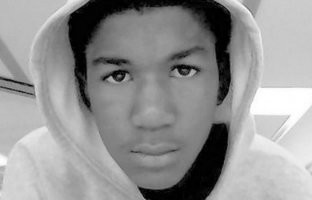Law v. justice

In our legal system a person is considered innocent until proven guilty. But if you’re a young black male, you have a good chance of being considered guilty until proven otherwise. Trayvon Martin didn’t even get the chance to try to prove his innocence. George Zimmerman served as policeman, prosecutor, judge, jury and executioner. Martin is dead, and Zimmerman is a free man.
Given the facts of the case, Florida law and the absence of eyewitnesses to the altercation between Martin and Zimmerman, the legal case against Zimmerman was never strong, and the prosecution appears to have overreached: it should have sought a conviction on manslaughter rather than second-degree murder.
Read our latest issue or browse back issues.
Jurors said they wrestled hard with the case but had reasonable doubt as to whether Zimmerman was guilty of second-degree murder given Florida’s stand your ground (SYG) law, which states that a person may justifiably use force in self-defense.
While the requirements of the law were followed, that does not mean that justice was done. Does anyone believe that if the roles had been reversed—if an armed young black man had killed an unarmed white man—an all-white jury would have found Martin innocent of all charges?
Numerous black voices concur that the outcome of the trial was predictable, and not just because the prosecution’s case was weak. It’s the way justice seems to work in America. The night after the verdict came down, Michael Pfleger, a priest on the South Side of Chicago, got a call from a distraught black mother. She said that her son had told her that the verdict meant his life wasn’t worth anything.
When Martin was shot and killed in February 2012, the Century criticized SYG laws like the one in Florida. Two different studies have documented that SYG laws actually result in an increase in violence. Rather than serving as a deterrent, such laws invite vigilantism. In cases like Martin’s, there were no witnesses to judge who had most reason to be fearful of the other. A study using FBI data shows that a white person who kills another white person in states with SYG laws is 354 percent more likely to be found innocent of murder than a white person who kills a black person.
Singer Stevie Wonder has said he won’t perform in Florida until it repeals its SYG law. What if other Americans—celebrities and vacationers—took a similar stand? The verdict in the Trayvon Martin case shows that a trial can be fair as far as the law goes, while the nation falls far short of offering justice to all.






